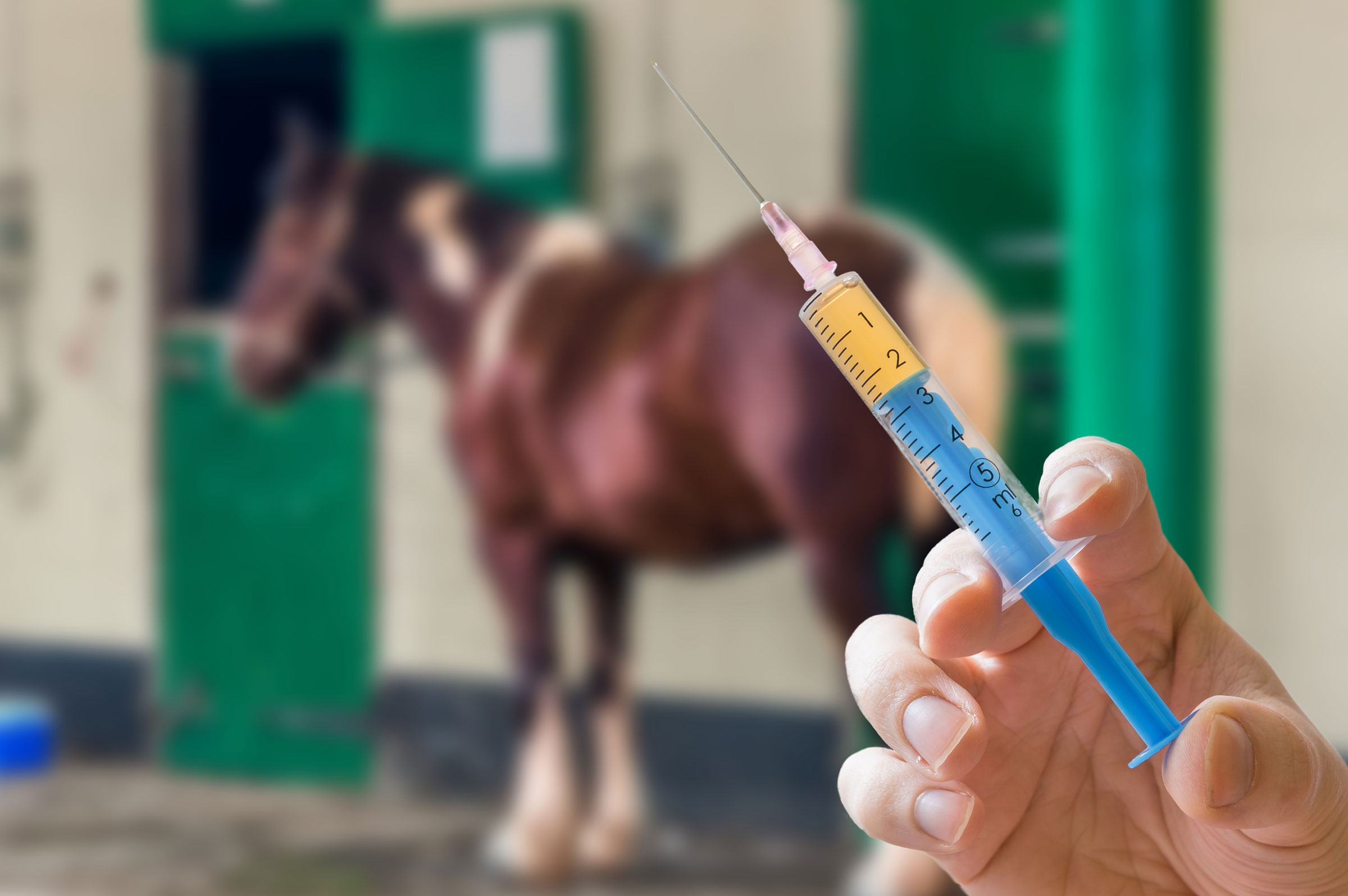
Many horse owners know from first-hand experience that horses are prone to musculoskeletal trauma with attendant lumps and bumps that can start a cycle of pain and lameness. Colic is another situation that is sometimes pain-related due to intestinal inflammation. Fortunately, there are many drugs available that target the inflammatory cycle. It is always a good idea to have your veterinarian evaluate the exact reason for your horse’s discomfort before pulling anything out of the medicine cabinet.
Links in articles are part of an Amazon Affiliate program that provides income to support this brand. Links are chosen by our editors.
Yet, it helps to have medications on hand so you can administer something based on your veterinarian’s advice if he or she doesn’t feel the need to see your horse on an urgent basis. The potential options of anti-inflammatory drugs that can be used on a horse are many in number. Let’s look at a few of these and how they are best used.
Non-Steroidal Anti-Inflammatory Drugs (NSAIDs)
NSAIDs are the most commonly used medications to help control inflammation. These work by blocking the prostaglandin cycle that is part of the inflammatory cascade. Examples of these medications include: a) Phenylbutazone (“bute”); b) Flunixin meglumine (Banamine); c) Ketoprofen; and d) Firocoxib (Equioxx). Others used less often include aspirin (for ophthalmic problems) and meclofenamic acid (for musculoskeletal issues).
The first three in this group exert effects on both COX-1 and COX-2 inflammatory components and thereby have additional and potentially adverse effects on stomach, colon and kidney function. This occurs due to their interference with the “good” prostaglandins that produce protective mucus for the lining of the gastrointestinal tract. Firocoxib is considered a COX-2-only NSAID, meaning that it doesn’t interfere with the gastrointestinal prostaglandins to the same extent as the others.
Corticosteroids
Corticosteroids (“steroids”) have potent anti-inflammatory actions. However, they also reduce the native immune response so are best used for acute conditions like insect hypersensitivity, hives, shock, an attack of chronic obstructive airway disease (heaves) or snake bite. Common examples of useful steroids you might have on hand are dexamethasone and prednisolone.
Joint Products
A well-accepted joint product that exerts anti-inflammatory effects is the intramuscular polysulfated glycosaminoglycan called Adequan. Another joint product given intravenously to assist with managing joint pain and lameness is hyaluoronate (Legend).
Topical Anti-Inflammatory Medications
DMSO (dimethyl sulfoxide) is a potent anti-inflammatory drug that can be applied topically to a swollen area to help reduce pain and inflammation. Beware that some horses experience skin irritation from DMSO.
Surpass (diclofenac sodium) cream is an FDA-approved topical NSAID that has the ability to penetrate the skin to the area beneath to exert local anti-inflammatory effects, particularly for osteoarthritis. Gloves should be worn to avoid direct skin contact when applying.
The Armamentarium
Other medications that you might be familiar with are not necessarily anti-inflammatories, but rather specifically target pain pathways: Dipyrone, capsaicin and acetaminophen, as some examples.
Take-Home Message
The drugs discussed above are specifically useful to have in your first aid kit to combat inflammation. Each has its own set of adverse effects, so it is important to always consult with your veterinarian before use.


